Volume 3, Issue 81: I Am Trying to Break Your Heart
"I am an American aquarium drinker. I assassin down the avenue."
Here is a button where you can subscribe to this newsletter now, if you have not previously done so. I do hope that you enjoy it.
In January 2009, I was in San Francisco, working on a story about a new Website called Twitter. I’d been in their offices all day--this was the day that the plane crashed in the Hudson River, which ended up becoming the driving narrative of my magazine feature--and when I left, I excitedly called my editor at New York to tell him how much good stuff I got. (Having the Hudson plane crash happen the very hours I was there, and to have that news literally be reported exclusively by Twitter while its founders sat there oblivious, was just incredible journalistic kismet.) I was chattering on about how I was going to structure the piece and brainstorming about whom we should talk to next when I heard a foghorn in the background of my editor’s call.
“Wait, where are you?” I said.
"I’m in San Francisco, actually,” he said. “Wait, I guess we’re both here. Wanna have a drink?”
I knew my editor well professionally but not that well personally, so we drank at his hotel bar--he was in town from New York, he admitted after his second vodka tonic, to interview for a job at another magazine--and got each other caught up on the contours of our lives. (He was a Duke guy who had worked in elite NYC media his whole career, so it was truly remarkable how much stuff he didn’t know. It took me 20 minutes to get him to understand that there were parts of Illinois that were not Chicago.) We discovered that we were co-workers who liked each other as people, and before you knew it, we were on our fourth drink and we’d canceled whatever other plans we had for the evening. We gossiped about colleagues, we strategized (ultimately unsuccessfully) how to get my Twitter story on the cover--we both just enjoyed talking shop with someone who loved the magazine industry as much as the other did. Then we got to talking about our favorite magazine stories ever. It was mostly the usual suspects: Susan Orlean’s Orchid Fever, David Foster Wallace’s Federer piece, Richard Ben Cramer’s Ted Williams obit. Then I mentioned Tom Junod’s Falling Man.
And then we talked about September 11 for three hours.
Today, everybody loves to tell their September 11 story. I was at a charity event last night, and merely mentioning that tomorrow was the 20th anniversary set off an immediate, almost unconscious sharing of everyone’s experience of that day. What’s interesting about these stories, which are generally consistent in their sameness, is that they usually are not about the person’s experience of September 11: They are about the time right before the attack, when the person telling the story was still innocent and oblivious and free of the burden and pain of what was coming. The stories aren’t about the planes hitting the towers or the Pentagon being attacked; they’re about the final seconds of walking around the world, those final seconds before you knew it was possible something like that could happen.
But in 2009, even that late, just launching into your September 11 story, particularly when you lived in the city when it happened, wasn’t something you just launched into. September 11 was discombobulating for anyone who lived through it, but the experience of living in New York City in the months and years directly afterward is impossible to explain to anyone who wasn’t there. It just hung in the air--the smell in the city was still front-page news a month later--and quietly suffocated just about everything you might find yourself a part of. You didn’t talk about September 11, or at least no one I knew did. You just slogged through the fog of it, or hacked through the thicket, to try to find any sort of air. And you drank. If you were to ask me what the months after September 11 were like, I mostly just remember me and everybody I knew drinking, usually quietly, often alone. You didn’t talk about it, and you didn’t need to. It was like talking about the ground, or the air, or your skin.
But that day in San Francisco, both of us just opened up. We talked about that day, the intricate details, that odd little tidbits that had gotten away from us. There was a woman who had gone missing, with her loved ones putting up Have You Seen Her? posters in the subway, the day before September 11, posters that were instantly overwhelmed. I’d forgotten about that. I’d been at Windows on the World just a few weeks before, seeing Amy Phillips and the Pontani Sisters, and I’d written a piece, long lost to history, about what it felt like to see a concert 1,300 feet in the air. I’d forgotten about that too. I was working at a doctor’s office on the Upper East Side that morning, and when they sent us all home at lunchtime, because there were no wounded to attend to (you either made it out, or you didn’t), I walked the 100 blocks downtown to my friend Eric’s place on the Bowery, where I knew all my friends would gather. A video crew was stopping people and interviewing them about what had happened. They stopped me too. I wonder if that video will ever surface. I wonder what I said.
I told all these stories to my editor. He told me all of his. I don’t think I’d talked about any of them, to anyone, before that point. He hadn’t either. But they just poured out of us that day. “I guess this is what happens when you get two New Yorkers drunk together in another city,” he said. “We just won’t shut up about September 11.” That was eight years later. It felt just as raw then. It felt like we’d just then started to deal with it.
****************
If there was one thing I was sure about September 11, it’s that living through it would be one of the primary things my theoretical future grandchildren would note about me. He was in New York City during 9/11, they’d whisper into their cyberwatches that they use to move effortlessly throughout space and time. But I no longer think that is true. The only thing anyone who was alive in 2020 will be whispered about by the later, cyberwatch-transporting generation will be that we lived through the pandemic. They will look at me, with my constant hand-washing and discomfort with confined spaces, the same way I looked at my grandparents, whose Depression experience led them to save old bars of soap and freeze every bit of leftover food, no matter how rotted and disgusting.
One of the worst things about September 11, in retrospect, was how destabilized everything has been ever since. It felt certain then that it was the worst thing that could possibly happen, but it turns out it was the start of a whole cavalcade. I suspect that’s why our stories are always about what we were like right before the attack, when we were people who had no idea what was coming. It still feels like we are trying to catch our breath, and can’t quite get there.
And as I get older, this is how September 11 resonates: It was the last time that something could truly knock us over, the last time when something so horrible could happen that our brains couldn’t process it. Now? Now our brains process horrible things all the time. I’ve had to process three or four pieces of truly horrific news since I woke up this morning, and I bet you have too. Now, is that just a product of the time, and our media consumption habits? I was 24 years old on September 11 and worked in an office that didn’t have a TV, let alone a scrolling Twitter feed; the first time I saw the destruction of the World Trade Center was hours later when I could see, from my friend Eric’s roof, the smoke still rising up from where the buildings had so recently stood. Now I’d be watching the whole thing live, and someone would be streaming on Twitch from Windows on the World, and there’d be a million hot takes launched before the first building fell. I feel like I was more innocent and sheltered in 2001 because I was more innocent and sheltered in 2001. But I was also 24 and childless and with no real responsibilities or obligations: I was scared for me and my friends, which counts as being scared but is absolutely nothing like being scared for your children. It would be harder now. I think I can admit that.
I’m not sure we learned anything from September 11, and if anything, it has made us dumber--more lumbering, more reactionary, more lizard-brain in our thought processes. But as I get older, I’ve stopped worrying so much about people learning anything from big massive events; the pandemic has surely put a permanent end to that little bit of magical thinking. Instead, I’ve started thinking of these global shifts simply as events to be survived, to be muddled through, to hunker down with my loved ones and do my absolute best to keep everyone as safe as I can. It is difficult to find, or even to look for, heroes anymore. It’s much more prudent just to seek shelter. I hope it’s not always like that.
That’s how September 11 changed things, I think, for me, and maybe for a lot of people. Back then I was shocked at this awful thing that happened. Now I find myself just grateful for the time we have where something awful isn’t happening. I do not know if this is better--it sure doesn’t seem like it. But it feels more mature. Life isn’t about blindly dancing along, thinking everything is going to be all right and then being waylaid when it isn’t. It’s about appreciating the good moments, the quiet moments, the safe moments, and being fortified for the moments that aren’t. We look at those days before September 11 wistfully because we miss not knowing that a September 11, or a pandemic, or a January 6, could possibly happen. But we were wrong, back then, not to know that. Those things could, and did, happen. Knowing that now should make us appreciate those rare moments of calm when they come, when we have quiet, when we have some peace. I can see them with much more vivid color now, and I hold onto them as long as I can. There are more dark moments now. But the moments of light? I now find them so much brighter. There is some solace in that. And maybe even some hope.
Here is a numerical breakdown of all the things I wrote this week, in order of what I believe to be their quality.
Unfortunately, Roger Goodell Deserves Credit, New York. It hurts me to say this as much as it hurts you to hear it. But it’s sadly true.
Your September 11 Reading List, Medium. I have read way, way too many September 11 books. Here are the best ones.
Bishop Sycamore Is Just the Tip of the Corrupt High School Football Spear, NBC News. Hadn’t written for these folks in a while, I was due.
My Previously Unpublished Interview With the Naudet Brothers, the Original 9/11 Chroniclers, Is Now Published, Medium. This was supposed to be in the 10-year September 11 anniversary issue of New York, but man that thing was packed. So it got cut, and now here it is.
Who’s the Next Player to End Up With 40 Homers?, MLB.com. In honor of Vlad Jr.’s accomplishment.
Internet Nostalgia: Slender Man, Medium. How the Internet now is different than it was in 2009, Part 1,000,000.
Best Gambling Movies, Updated, Vulture. With The Card Counter.
I Wrote a Piece For the MLB All-Star Game Program and They Mailed It To Me This Week and I Saw It, So I’m Counting It, MLB Productions. This is not the actual headline of the piece.
The Thirty: A Goal For Every Team This September, MLB.com. My goal for the Cardinals this September is “not to watch them.”
PODCASTS
Grierson & Leitch, discussing “Shang-Chi and the Legend of the Ten Rings,” “Worth” and “Bronson.”
Seeing Red, Bernie and I talked Pujols and the merciful impending end of the season.
Waitin' Since Last Saturday, we reviewed that big Clemson win and previewed UAB.
LONG STORY YOU SHOULD READ THIS MORNING … OF THE WEEK
“One in 5,000,” David Leonhardt, The New York Times. David Leonhardt has been a voice of reason and sanity throughout the pandemic, and this was the best piece yet about the low odds of a breakthrough infection, and the infinitesimal odds of needing medical attention if you get one. I do not know if any readers of this newsletter haven’t been vaccinated yet, but if you haven’t, jeez, please, please do so. For your sake, more than just anyone else’s.
BOOK I’VE READ THAT YOU SHOULD READ
Fall and Rise: The Story of 9/11, Mitchell Zuckoff. Perhaps the least well-known great September 11 book, this one came out in 2019 and still feels to me like the most definitive account of everything. This is the one that has everything.
ONGOING LETTER-WRITING PROJECT!
Write me at:
Will Leitch
P.O. Box 48
Athens GA 30603
CURRENTLY LISTENING TO
“Seven Sisters,” The Shouting Matches. Now that I’ve (finally) converted fully to Spotify, I constantly delight in discovering stuff from nearly a decade ago that I’d never known existed in the first place. Hence: The Shouting Matches.
Remember to listen to The Official Will Leitch Newsletter Spotify Playlist, featuring every song ever mentioned in this section.
Today is the first tailgate in Athens, Georgia, since early November 2019. Fair to say people will be out in full force. Including these two:
Be safe out there. And go Dawgs. (And go Illini.)
Best,
Will

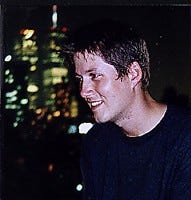
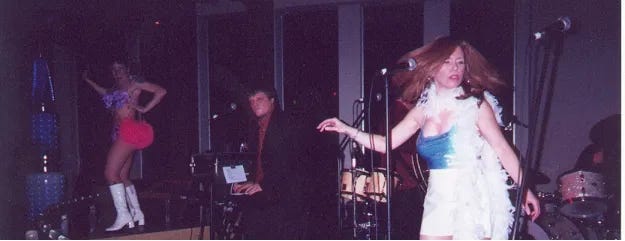
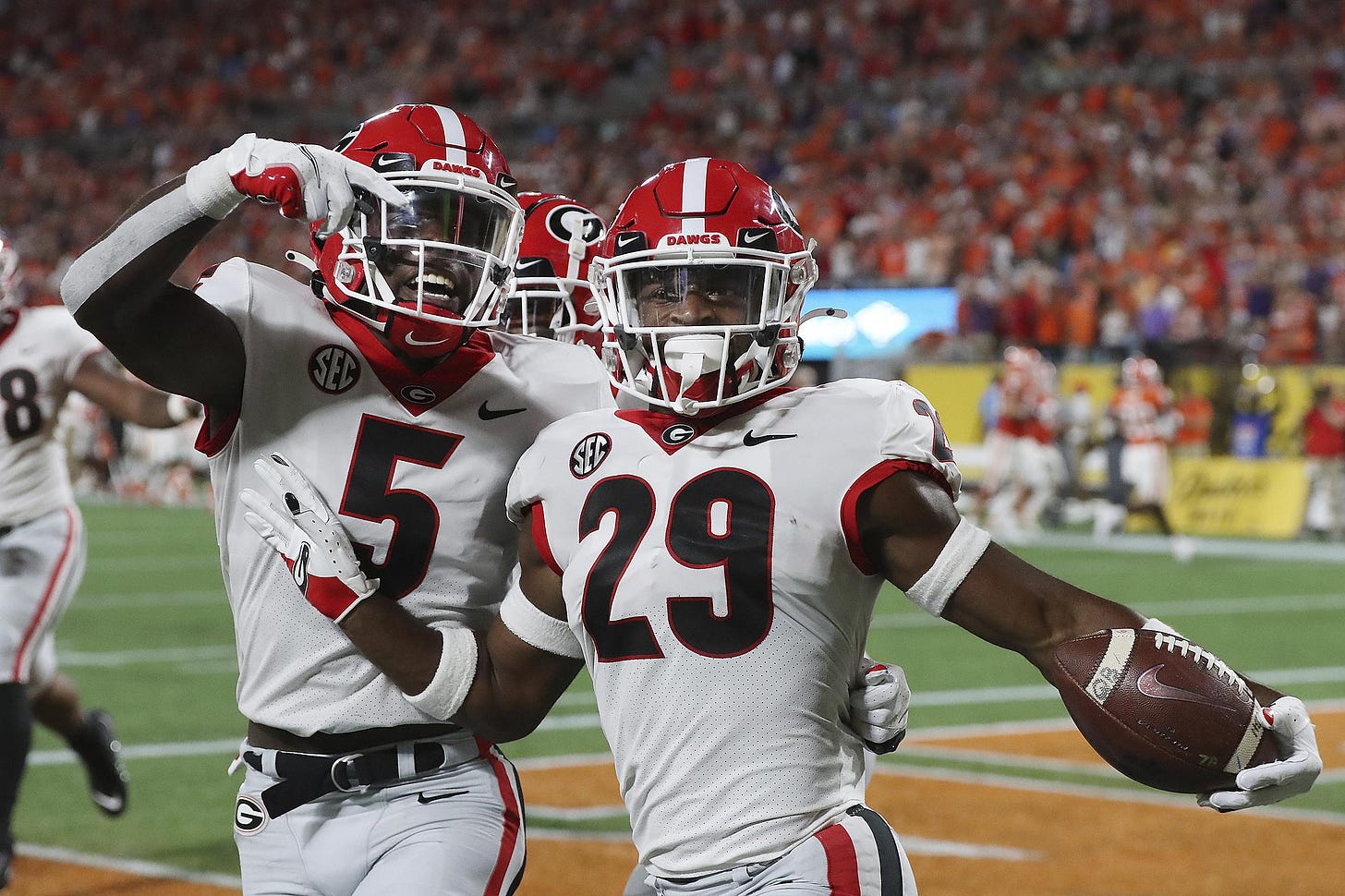

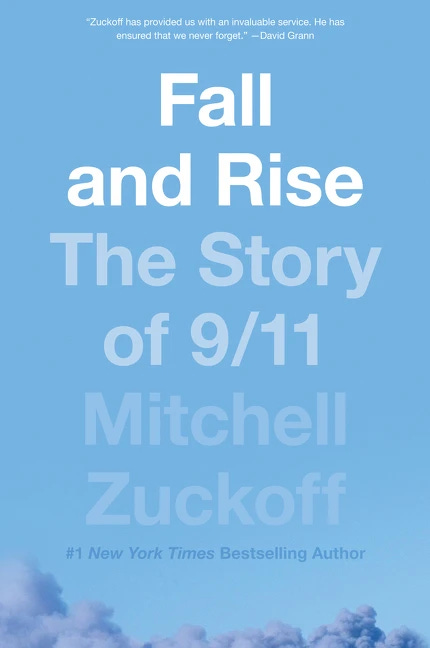
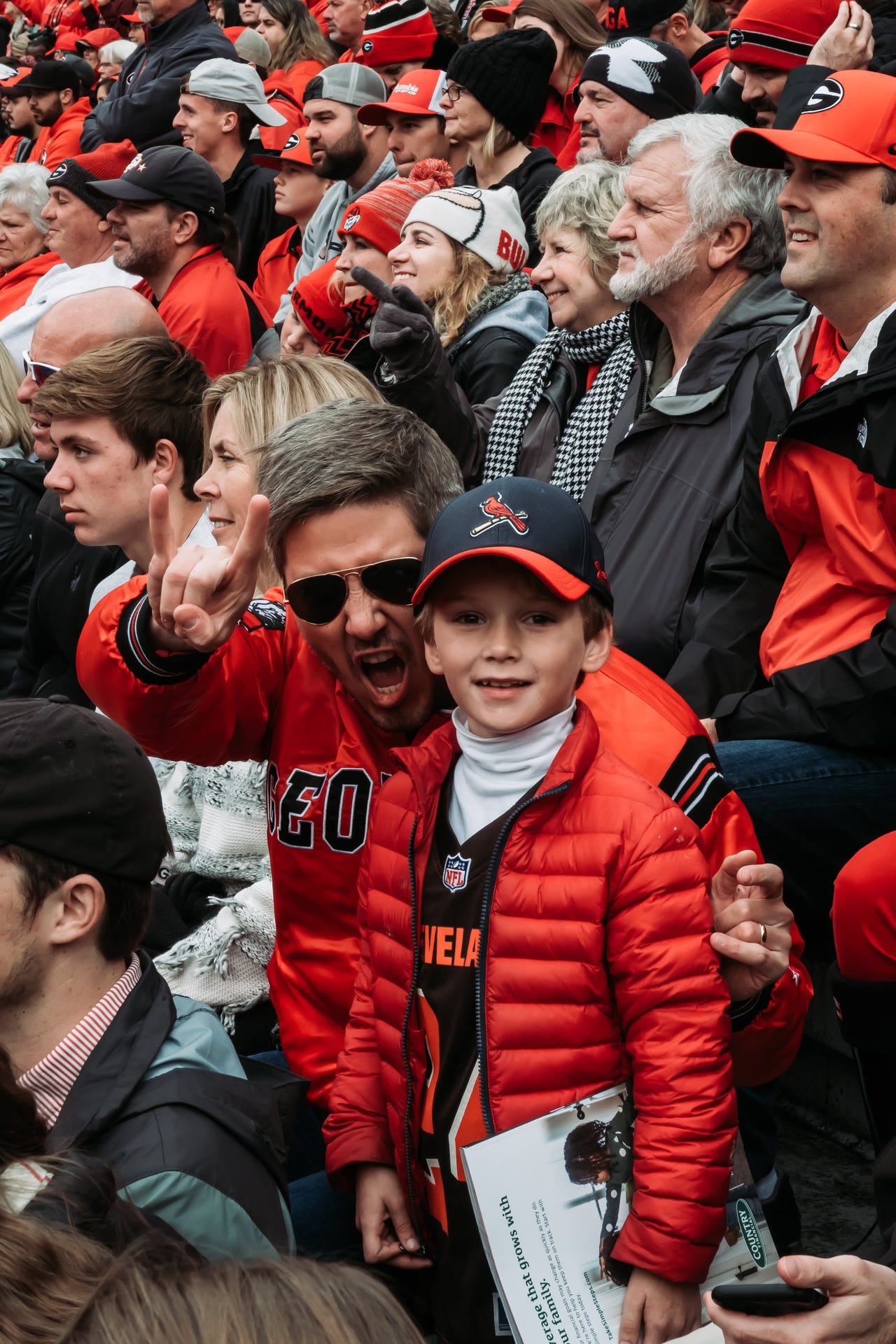
I was 23 on September 11 in New York, and everything you wrote rings true. Office was moved temporarily from lower Manhattan to Stamford, and oh did we hit that Metro North bar car. The first weeks of the pandemic felt oddly familiar.
Wish I had known about Foley’s back then, would have bought you a beer.
I think I liked Malignant more than both you and Grierson, but I was also the kid who would thumb through Fangoria magazine at bookstores, so you would probably ignore me at a party. It did have the feel of an old school horror film, and the last part of the movie had some pretty gross body horror, but I have no regrets.